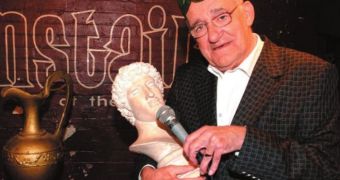There's certainly not much new under the sun, as it can also be concluded after reading one of the world's most ancient joke books. The original manuscript is a collection of 1,600 years old Greek jokes, most of which seem strikingly familiar even today, although in a somewhat updated version. The book dates from the 4th century AD, and contains 265 gags, some of which ring a bell even today, such as the resemblance between an old joke and the famous Monty Python sketch.
You are surely familiar with the line "I'll tell you what's wrong with it. It's dead, that's what's wrong with it." For those of you who can't pinpoint it, the excerpt is from the British Monty Python comedy act, which was voted among the world's funniest, and refers to a customer who returns to a shop with a parrot that died.
The Greek book called "Philogelos: The Laugh Addict" holds an almost identical joke, at least in nature, shares its publisher, YUDU. The old anecdote involves a customer who complains to the seller about a slave that had just died. In a dazzling display of humor, the seller responds: "By the gods, when he was with me, he never did any such thing!"
The original manuscript is associated with the work of 2 less famous ancient comedians, called Hierocles and Philagrius. However, there's little additional detail known about them, except for the fact that they compiled the jokes. The modern multimedia version of the book is available for purchase online (at this location, if you're interested), and contains an audio interpretation of the content, performed by the famed British comedian Jim Bowen.
"Jim Bowen brings them back from the dead. It's like Jurassic Park for jokes," shared Richard Stephenson, the digital publisher and YUDU's CEO, quoted by Reuters. Bowen too has found the ancient jokes very similar to the modern ones: "One or two of them are jokes I've seen in peoples' acts nowadays, slightly updated: they put in a motor car instead of a chariot."

 14 DAY TRIAL //
14 DAY TRIAL //